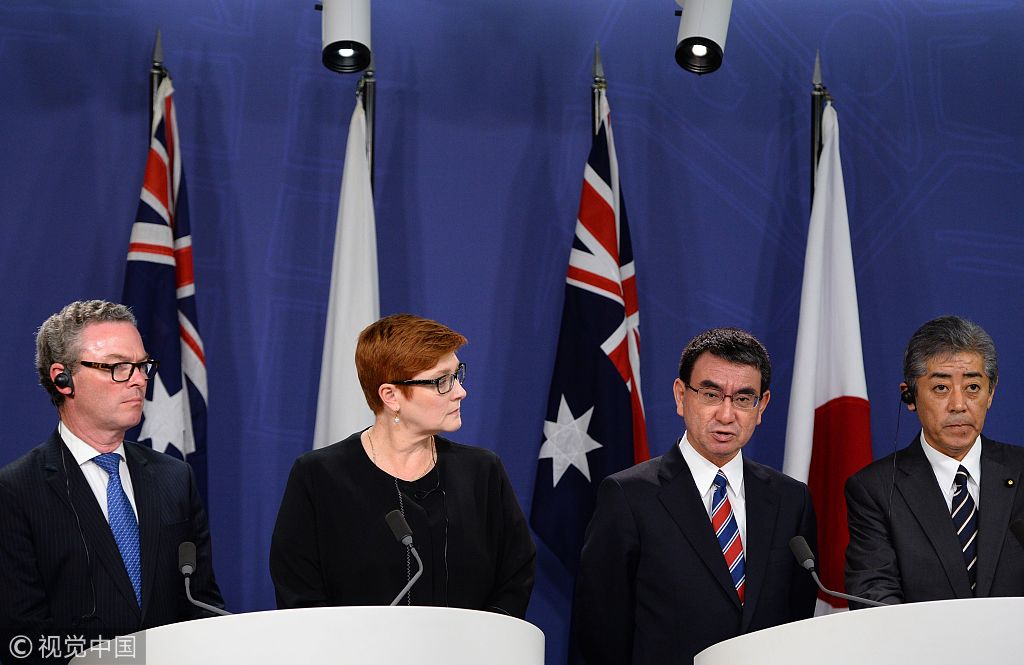Australia and Japan should not let ally lead them astray: China Daily editorial


In the trilateral relationship between the United States, Japan and Australia, ties between Tokyo and Canberra tend to be the weakest link. Under the encouragement of the United States, however, that link is becoming stronger, with the US making continuous efforts for its two allies to strengthen their strategic partnership.
On Wednesday, the foreign and defense ministers of the two countries concluded their "two-plus-two" talks, as they are known, in Sydney, stressing the need to bolster their defense ties, including increasing military joint exercises, amid what they described as the rapidly changing security environment in the region.
In their joint statement, the two countries announced they plan to stage their first-ever fighter jet exercise, dubbed "Bushido Guardian", in 2019. These overtures show although it is too early to say the two Pacific powers aiming to forge a military alliance in the true sense, they are certainly one step closer to becoming what what they are, namely "quasi-allies".
And their pledge to deepen security cooperation will not only deepen military-to-military ties between Tokyo and Canberra but also help expand each side's radius of military operations and thus enhance their defense forces' capabilities in the Asia-Pacific region.
To cover up their real intention of jumping on the US bandwagon to contain China, Tokyo and Canberra pointed accusing fingers at China's so-called growing maritime assertiveness in Wednesday's joint statement, expressing concerns about the situation in the East and South China seas.
Such rhetoric does not hold water. It only lays bare the hypocrisy of the US and its allies because they have either helped create or provoked the maritime disputes in the waters themselves. While Washington has instigated the South China Sea disputes in recent years, Tokyo has single-handedly ratcheted up tensions in the East China Sea by nationalizing China's Diaoyu Islands.
Canberra and Tokyo should not allow the recurrence of the Cold War paranoia, that has already taken hold of the US, shape their actions. As key players in the region, Australia and Japan should work with China to help promote the region's development and jointly address common security challenges.
They should realize the full significance of a return of the full-scale mistrust of the Cold War, as it will create a fragile peace that risks being shattered by the slightest misstep. They should beware that letting the US lead them by the nose as it pursues a confrontational strategy toward China as that is really not in their best interests.































